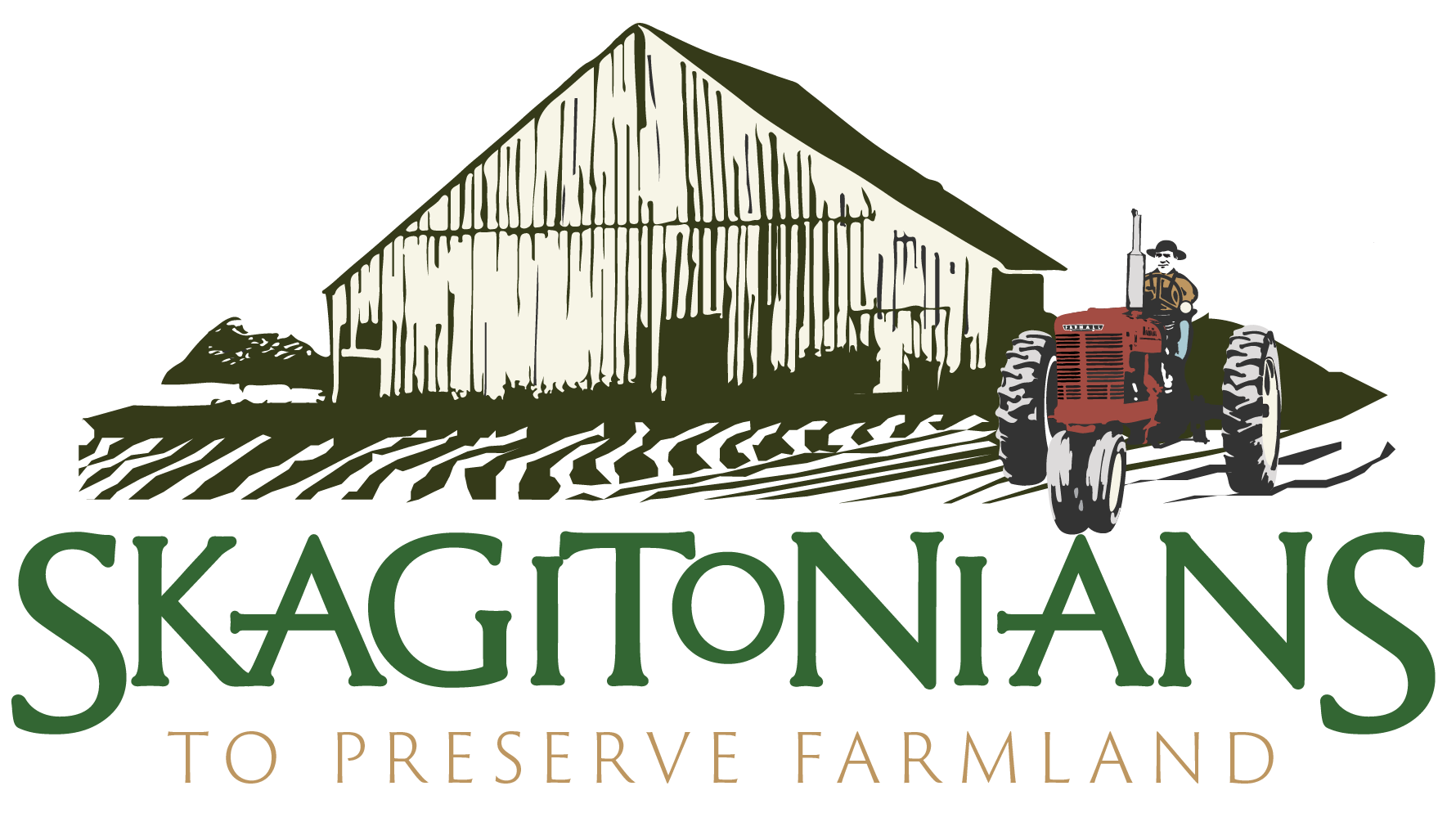Waxwing Farm: Farmstand as CSA
Of the 65 certified organic farms in Skagit County, only Waxwing Farm is also a cross-country course.
Tucked away in south Mount Vernon on property owned by the Mount Vernon Christian School, the 4-acre plot was originally a nursery. Cleared and then farmed by Ray deVries of Ralph’s Greenhouse for several years, it was fallow in 2015, when Taylor Barker and Arielle Luckmann were looking for land.
They couldn’t believe their luck when they signed a long-term lease. This wasn’t just land—it was land already set up for farming. It came with organic certification, which can take years to secure. Irrigation lines were already in the field, ready for “city water” from the Skagit Public Utility District. There was a spot to wash vegetables. The top-notch riverbed soil drained well and held nutrients and water. There were no low spots that would flood, and no deer to snack on their crops. And it was within city limits, close to customers! Everything they could possibly need was there.
It was a win-win situation, says deVries. “The school has somebody to care for extra land they don’t need now, but hold it for future. And how many places do you get to run on a farm?”
The cross country team runs in and around the large trees along the edge of Waxing Farm, named after the cedar waxwing. Barker and Luckmann run everything else. The western Washington natives drew on several years of experience working on small-scale, human-powered organic farms as they set about creating a diversified farm that could produce food almost year round.
First, though, they had to clear the property of chest-high horsetail, a tenacious two-million-year-old plant whose deep and intricate root system is a formidable foe of Northwest gardeners and farmers. For that, they needed a tractor.
The first spring, Barker went to work breaking up the rhizomes of the horsetails with a chisel plow, tilling 12 inches below the surface. Still a regular practice, deep tilling by tractor keeps horsetail in control while also opening up soil for deep crops like carrots.
Over the next seven years, they refined their skills in rotating crops, planting buckwheat and other cover crops, keeping slugs away from their tender greens, and managing soil health and quality. Most of the cultivating, planting and harvesting are done by hand, with some tractor work. Dried weeds are used to mulch beds or tilled back into the ground. Some vegetable scraps go to Mesman Farm to feed animals, and some slightly composted Mesman cow manure ends up at Waxwing.
Their first year they “grew for a standard farm season, late May into October,” says Barker. As they diversified, they learned to work more dynamically with the weather and the seasons. Today the October to May shoulder season produces lots of tasty vegetables.
With Little Mountain as a backdrop, Barker and Luckman grow everything from artichokes to herbs to winter squash. Flowers grow between rows of corn; tomatoes and winter salad greens ripen in hoop houses. Cabbage, beets, salad mix, leeks, and sometimes some shallots and parsnips are available in winter. “The last couple years we are really pulling product out of all four acres,” says Luckmann. “And if one crop fails, we still have 20 more, which protects us financially a little bit.”
Luckmann used marketing and people skills honed as a self-employed fiddle player to find markets for Waxwing’s produce. Like many new farmers, they started selling at farmer’s markets and created a Community-Supported Agriculture box. Having customers pay for the whole year up front “was particularly helpful to us in our first years, because you get that money early on in the season, when you really need it,” says Barker, but building a good CSA box can be tricky. “You need to include enough produce, variety and appeal to keep customers happy and ready to eat your vegetables all year.”
With the pandemic came an opportunity to refocus. The birth of their daughter Pearl offered a good reason to embrace that shift. Luckmann and Barker continue to sell to the Skagit Valley Coop and local restaurants, but they no longer drive south every Sunday to be part of the Everett Farmer’s Market, and they no longer pack CSA boxes. Instead, their farmstand is their “box”. CSA shareholders still pay in advance, but now they choose their own produce when the farmstand is open—and Pearl gets more time with her parents.
From April to December, and then for winter popup sales, customers come from Mount Vernon, Anacortes, Bellingham, Conway, Everett, even Seattle. They can also purchase meats from Mesman Farm, cookies and croutons from Water Tank Bakery, and in summer, strawberries from Pura Nelida Farm. “It was always my vision to make our farmstand a regular shop, and it makes me proud that we have accomplished that,” says Luckman. “I feel lucky that because we’re so close to downtown, we get to be a spot on people’s errand day.”
Challenges with weather, water, weeds, and hiring capable seasonal workers will always be present, but ten years from now, Barker and Luckman hope to still be farming and growing food for people, while the high school cross country team runs along the perimeter.
“We love living and growing here and getting to know our customers and community,” says Luckman. “It’s cool that we get to be one of the farms that is showing how agriculture can stay in the community rather than shipping crops worldwide. We have learned a lot, and we are in a good spot.”
By Anne Basye: info@skagitonians.org



